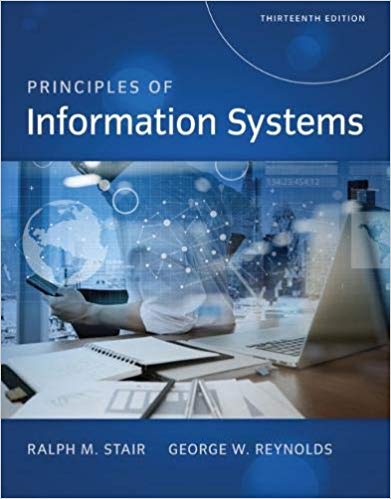Why did Apple object to the court order in this case? What was the governments rationale for
Question:
- Why did Apple object to the court order in this case? What was the government’s rationale for compelling Apply to comply with the order?
- Do you think Americans should be willing to surrender some of their privacy for increased security by allowing back doors that enable law enforcement access to smartphones and other devices after a search warrant has been issued? Why or why not?
- The FBI and Apple are involved in similar disputes in other cases, including one in New York involving an alleged drug conspiracy. Shortly before the government dropped its legal action against Apple in the San Bernardino case, the judge in the New York case ruled against the government, rejecting the argument that the All Writs Act gave prosecutors the authority to compel Apple to bypass the lock on the seized phone. Do your opinions about the issues involved in the San Bernardino case change when they arise in connection with a case that does not have national security implications? Why or why not?
FBI Orders Apple to Unlock iPhone
On December 2, 2015, Syed Rizwan Farook and Tashfeen Malik burst into a holiday gathering of county employees at the Inland Regional Center in San Bernardino, California, and began shooting—ultimately killing 14 people and wounding another 21. In the hours after the attack, the couple became involved in a shootout with police, and both were killed. With their deaths, the investigation into the deadliest terrorist attack in the United States since September 11, 2001, entered a new phase, as hundreds of FBI agents in California and around the world began investigating the attackers’ online and offline activities in the hours, weeks, and months leading up to the shootings. In addition to the stockpile of weapons and homemade pipe bombs found in the home of Farook and Malik, investigators found multiple electronic devices. While attempts had been made by the couple to delete data and damage some of the devices, FBI Director James Comey reported two weeks after the attack that investigators had found private messages between the two that showed their “joint commitment to jihad and to martyrdom.” In addition, Malik posted a note on Facebook shortly after the shootings, pledging the couple’s allegiance to the leader of ISIS, a terrorist network also known as the Islamic State. In order to further investigate possible connections to extremist groups, the FBI attempted to access the data on an iPhone used by Farook. The phone, which belonged to Farook’s employer, the San Bernardino County Health Department, was locked by a pass code, and neither the county nor the FBI were able to unlock the phone. The iOS software installed on Apple’s phones allows only 10 unsuccessful pass code attempts before it wipes the phone’s memory clean. This security feature prevented the FBI from attempting a “brute-force” attack, which is essentially a trial and- error method in which all possible pass codes are tried systematically until the correct one is uncovered. In the weeks following the shootings, Apple representatives cooperated with the FBI’s investigation, providing some older data backups from the phone as well as suggesting possible methods the agency could use to access the data on the phone itself. The company balked, however, when the FBI demanded that the company develop new software that would disable the functionality that wipes the phone’s memory when too many wrong pass codes are entered in a row. The FBI also wanted Apple to eliminate the built-in delay between pass code attempts, which, by Apple’s estimates, meant that a brute-force attack on a phone with a six-digit pass code could take more than five years to complete. The FBI’s demand that Apple develop new software that would allow it to unlock the phone in this case is an extension of an ongoing debate about whether tech companies should be compelled to build a “backdoor” into their software that would allow the government to access data even when secure encryption has been used to protect it. Without it, some law enforcement experts warn, the United States could be faced with the prospect of what has been dubbed the “Going Dark” problem, which some experts fear would lead to the inability of law enforcement to access electronic data even with a warrant. That concern was heightened for some when Apple announced in 2014 that it had altered its software so that it was no longer “technically feasible for us to respond to government warrants for the extraction of data from devices” running iOS 8 or later versions of that software.
Step by Step Answer:

Principles of Information Systems
ISBN: 978-1305971776
13th edition
Authors: Ralph Stair, George Reynolds





